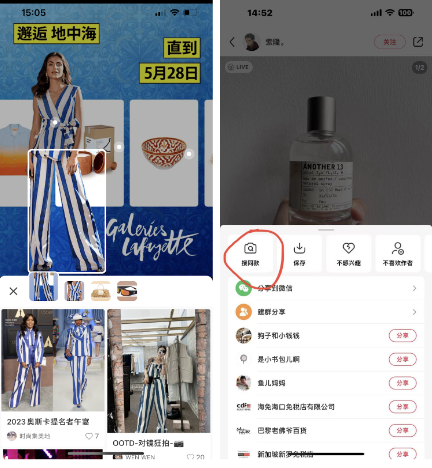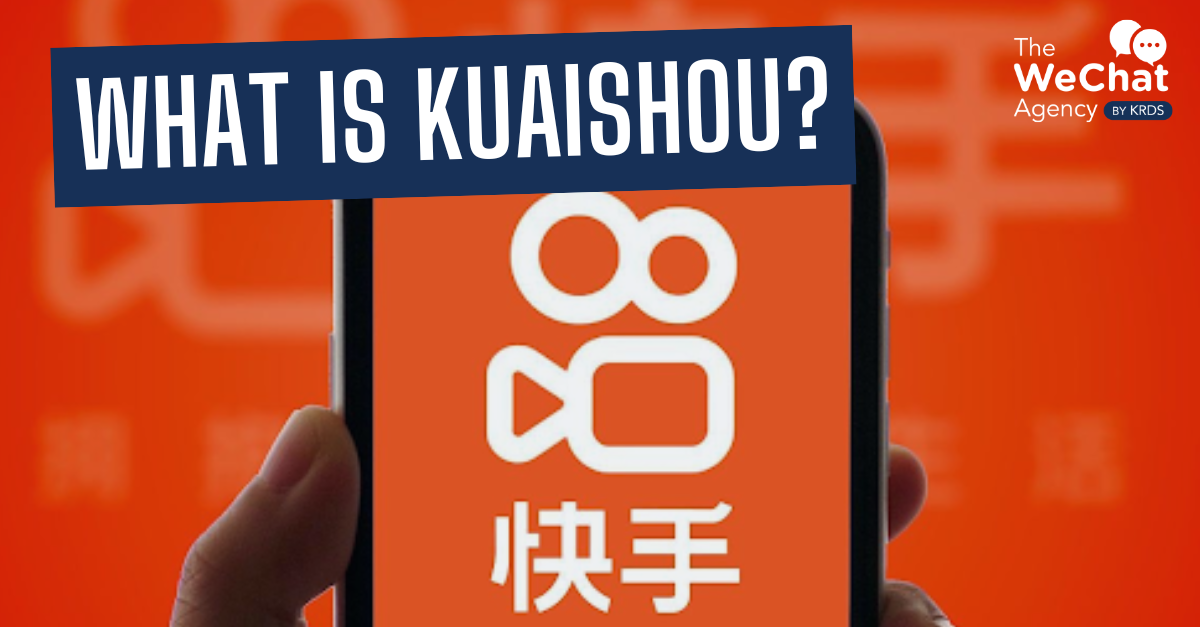-
RED’S New Image Search Function
On June 19, RED launched the “image search” function. Users can not only search for the same type of note by long pressing the note picture, but also click on the small camera in the search bar to identify and view the same type of note.

-
New Zealand tourism seeks boost from Xiaohongshu marketing pros.
- Since 2019, fewer Chinese tourists from that country have been coming to the country. Tourism New Zealand has recently established a partnership with a Chinese platform in an effort to buck this trend. Through this partnership, the government-funded organization will receive support for its marketing initiatives.
- On June 29, at the launch event in Shanghai, Chris Hipkins, the prime minister of New Zealand, and Wang Yajuan, the company’s chief marketing officer, took a selfie. This selfie was later shared on Tourism New Zealand’s official Xiaohongshu account. Hipkins had the chance to meet and greet with top Chinese travel bloggers
- New Zealand has maintained a strong relationship with China throughout the pandemic. China is currently New Zealand’s largest trading partner.
- The impact of connecting and building trust with consumers through the Xiaohongshu platform cannot be underestimated.
Link: https://daoinsights.com/news/new-zealand-tourism-seeks-boost-from-xiaohongshu-marketing-pros/
-
What can luxury learn from the Shein PR debacle?
- What happened: Desperate to transform its deservedly murky reputation, Nanjing-founded fast-fashion retailer Shein flew a group of influencers to visit its factory headquarters in Guangzhou in the middle of last month. Intended to burnish its reputation, the trip generated a slew of criticism.
- Journalists revealed in their stories from the previous year that the company’s factory workers were paid only two cents per item while working 18-hour days with no weekends. Some employees were also apparently forced to take just one day off per month. Researchers also found that the factories had no emergency exits, and barred windows
- The value of influencers is increasing along with social media engagement, and wealthy fast-fashion companies are willing to offer significant financial incentives to those who are willing to risk a setback to their reputation.
- Lesson: Luxury brands would be wise to avoid KOLs who are primarily driven by money and do not lead with values.
Link: https://jingdaily.com/what-can-luxury-learn-from-the-shein-pr-debacle/
-
Bilibili Embraces the “Melon-Eating Culture” in Real Life.
- Bilibili and Shanghai TX Huaihai Plaza have organized an event that brings the “melon-eating culture” to life, targeting young people who enjoy watching online gossip.
- A sense of community was fostered among Bilibili users by the event’s imaginative games and activities, which allowed participants to carry over their online persona into the real world.
- The pink watermelon fields at the event attracted many young people, who took photos and shared them on social media platforms.
- By displaying their Bilibili membership status or posting on a particular topic, participants had the chance to receive a free watermelon. They could also scan QR codes to access pertinent videos on Bilibili.
Link: https://mp.weixin.qq.com/s/rWabhJN1G15ojCVLj_hRfA
-
How much damage are French riots causing ‘Brand France’?
- After a teenager was fatally shot by the police during a traffic stop, riots broke out in Paris and other French cities, resulting in extensive street brawls and aggressive encounters with the police.
- Prominent stores, including Nike, Apple, and Louis Vuitton, experienced chaos and looting during the protests, while the situation remained tense with boarded-up stores on the Champs Élysées.
- The riots in France became a top trending topic on Chinese social media platform Weibo, with the hashtag #Frenchriots generating 320 million views.
- Businesses in France, particularly those in the luxury market, are concerned about the unrest and safety issues because China traditionally sends two million tourists to France each year for luxury shopping, but there is a chance that the unrest will cause Chinese tourists to be wary of going there again. In addition, the Chinese Embassy in France issued a safety warning to Chinese nationals following an attack in Marseille on a bus carrying Chinese tourists.
Link:https://jingdaily.com/how-much-damage-are-french-riots-causing-brand-france/
-
White people meals? What’s the story behind China’s ‘coldest’ food trend.
- The trend really started to take off in May, when people started posting photos and videos of these simple meals on social media platforms in China
- The similarities between these straightforward meals and the current “quiet quitting” mentality, where tired workers in China simply slow down their progress at work rather than quitting their jobs, were explored in one post on 163.com, a Chinese blog/media site.
- Some people say the “white people meals” trend might serve more than just a stereotype; it may actually help challenge other hackneyed cultural beliefs.
Link: https://edition.cnn.com/travel/article/white-people-meals-chinas-food-trend-intl-hnk/index.html
-
Will China overtake the U.S. on AI? Probably not. Here’s why.
- Some Chinese companies have gone as far as making their own rules. The Chinese version of TikTok, Douyin, mandates that AI-generated content be labelled and that users register their real identities before posting.
- Chinese businesses have long been at the forefront of surveillance technology and have invested heavily in AI, from lining city streets with surveillance cameras to using facial recognition to track paper use in public restrooms.
- Chinese companies have been investing in AI for years from lining city streets with surveillance cameras to using facial recognition to monitor paper use in public toilets and have long been at the cutting edge of surveillance technology. But when it comes to some other types of AI, Chinese firms lag years behind their international peers.That’s partly because the Chinese Communist Party-run government strictly controls information and communication.
- In a recent study, Ding discovered that the majority of the large language models created in China lagged behind those created in the United States by almost two years, a gap that would be difficult to close even if American businesses had to adapt to regulation.
- The Biden administration placed restrictions on the export of specific chips made anywhere in the world using American machinery to China. Washington said the move was necessary to prevent U.S. technology from being used in Chinese military applications or from making its way to Russia.
- This has made it harder for Chinese tech companies to access the most advanced chips that run complex AI frameworks.
- It’s a question of rising to the occasion of what this moment represents. Do we care enough to protect people who are using this technology? Because people are using it whether the government regulates it or not.
Link:https://www.washingtonpost.com/world/2023/07/03/china-us-ai-technology-chatgpt/

